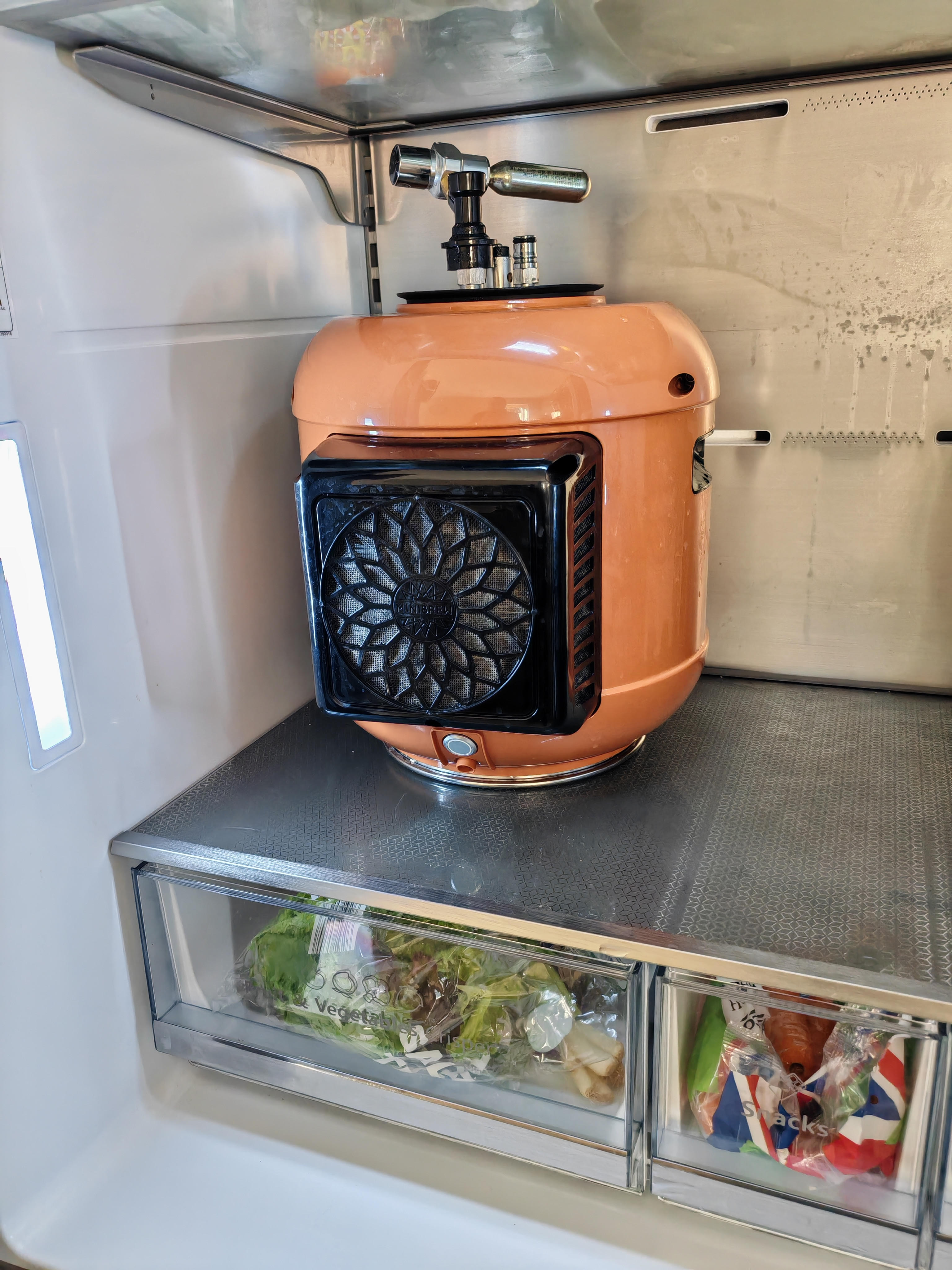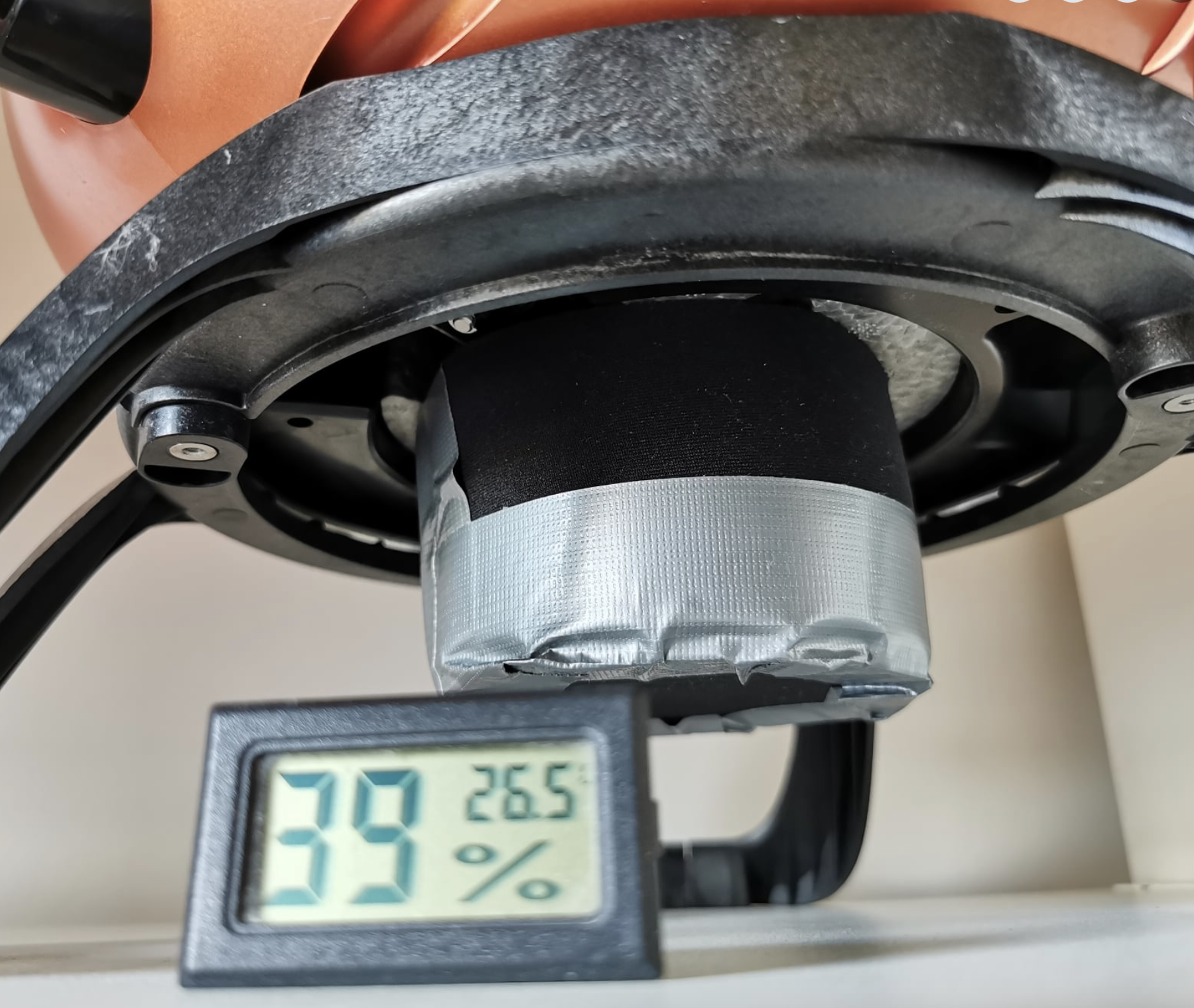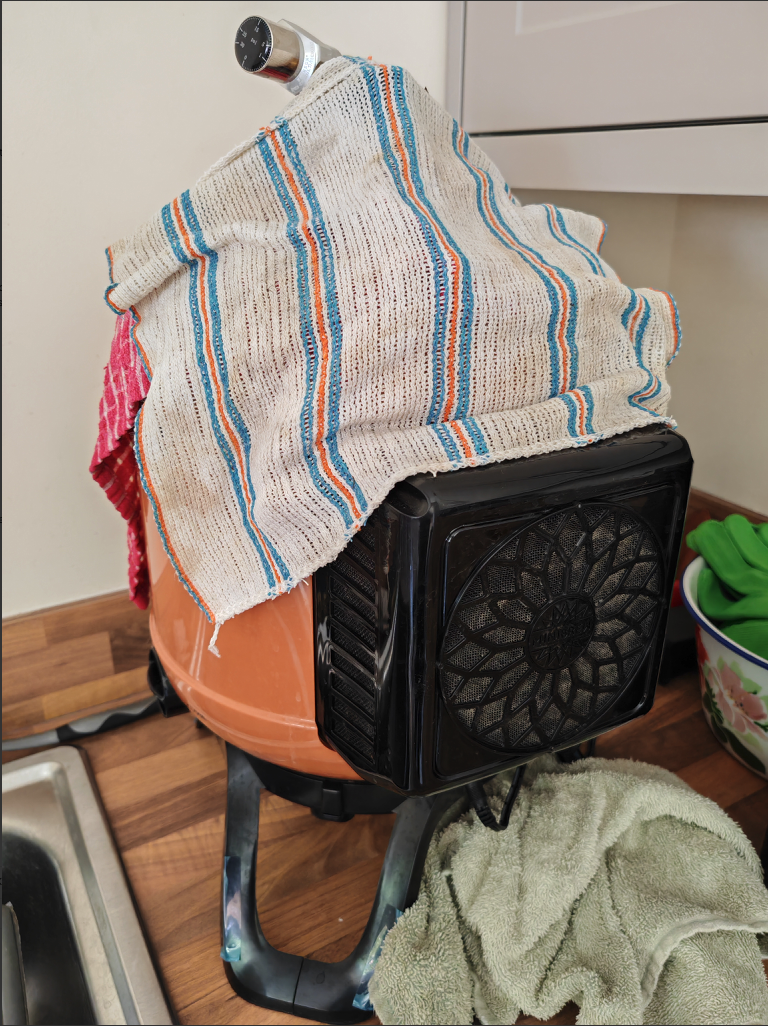Troubleshooting: Can't reach conditioning temperatureUpdated 2 days ago
The conditioning phase, also known as cold conditioning or lagering, is typically conducted at a temperature of around 41°F (5°C). At this temperature, yeast activity slows significantly, helping improve clarity, remove off-flavors, and round out the final flavor of your beer.
What If You Can Only Reach, for example, 46°F (8°C)?
We understand that Exobrew/MiniBrew units may struggle to reliably hit the ideal lagering range (35–41°F or 1.5–5°C), especially in warm ambient environments. Here's what to do:
If your system doesn’t quite reach 41°F and stabilizes closer to 46°F (8°C), that’s still perfectly acceptable. Here’s what to expect:
It still works: You’ll still get many of the benefits of cold conditioning—like clearer beer and a cleaner finish—but the process will be slightly slower.
Just extend the time: To compensate, condition your beer a little longer. For example, if your recipe suggests 3 days at 41°F, you might want to extend to 5–7 days at 46°F. I
Pro tip: When you brew a recipe kit and can't adjust the timing, we suggest letting the conditioning continue for two more days before starting the carbonation process.
Temperature vs. Time
| Temperature | Effectiveness | Suggested Duration |
|---|---|---|
| 41°F (5°C) | Ideal | 3–5 days |
| 46°F (8°C) | Still effective | 5–7 days |
What If I Wait Like 4 Days Instead of 2?
No problem at all.
Conditioning longer than the minimum recommendation is usually beneficial, not harmful. Here's why:
Extra conditioning time improves clarity and smoothness as more yeast and proteins settle out.
The beer continues to mature, rounding out flavors and reducing any remaining off-notes.
There’s no risk to quality, as long as your keg remains sealed and temperature-controlled.
When Is “Too Long” a Problem?
Extended cold conditioning (2+ weeks) may:
Dull hop aroma in hop-forward styles (like IPAs)
Increase the chance of unwanted oxidation if the keg is opened or handled.
As long as your keg stays sealed and cold, a few extra days, such as 4 instead of 2, are not only safe but often beneficial.
When time is an issue, use chilling support (Optional Hack)
Place the unit in a cooler room, basement, or near an AC vent or fridge.

Add an insulated container around the tub or remove it.

Add a cool cloth on top of the Smart keg

Last option: Adjust Style Expectation
If precise lagering isn't possible, brew hybrid styles like:
Kölsch (ferments like an ale, conditions like a lager)
California Common (fermented warm with lager yeast)
These styles tolerate higher temps and still deliver clean results.
Bottom Line:
If you can’t hit exactly 41°F, no problem—just let your beer condition a little longer. Most beer styles (even lagers) will still benefit significantly from this step, even if it’s done a few degrees warmer.